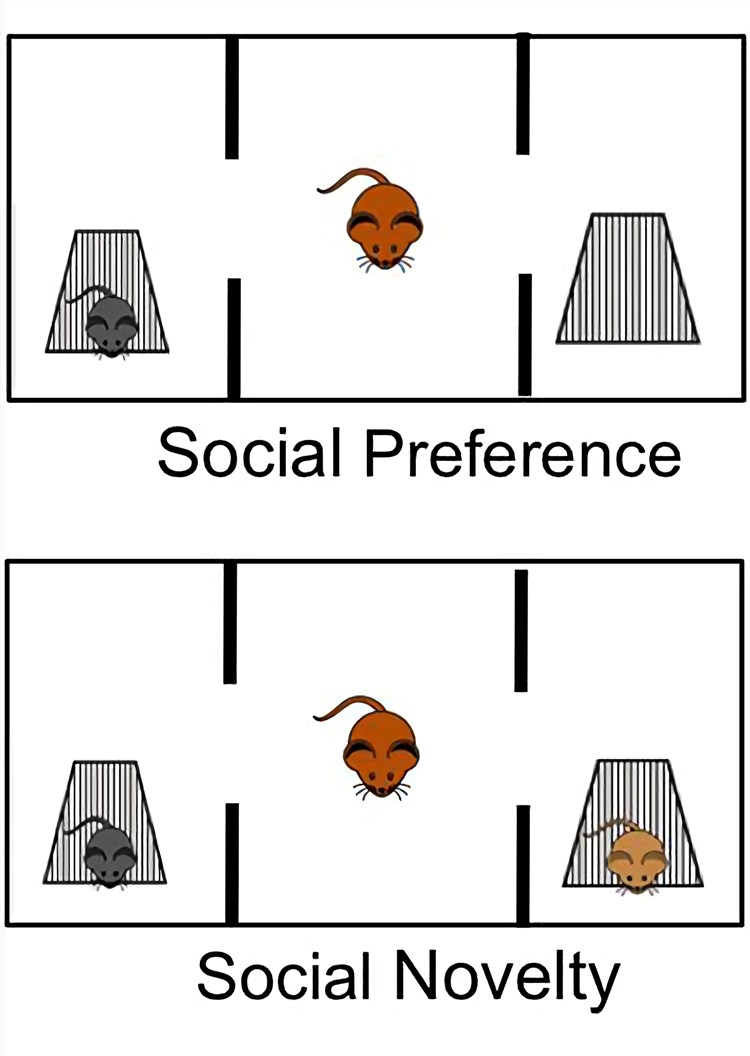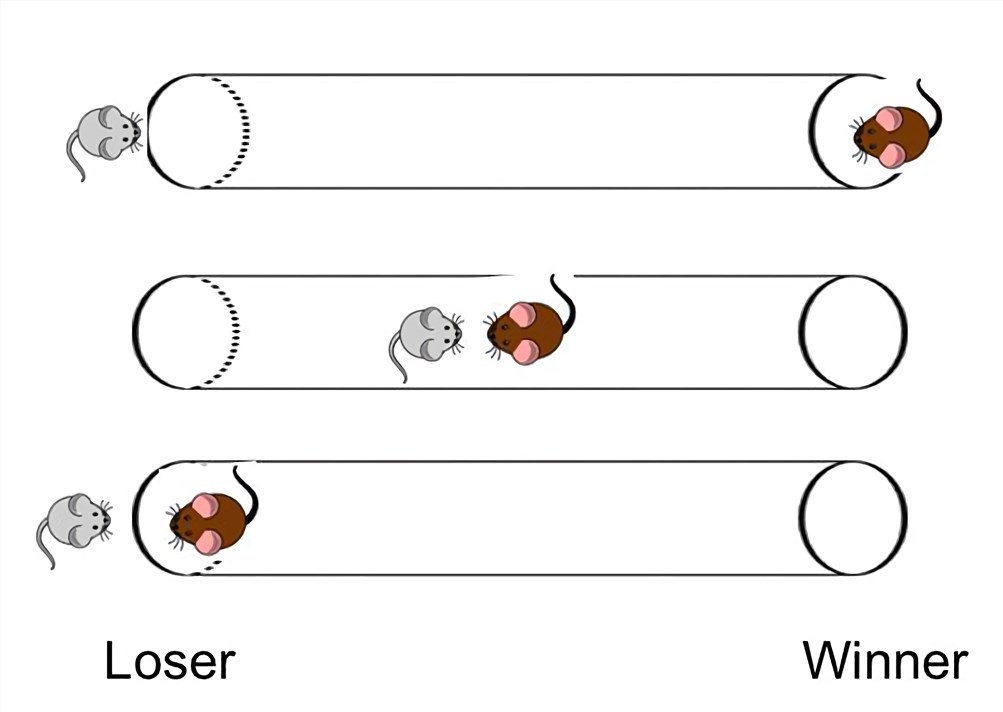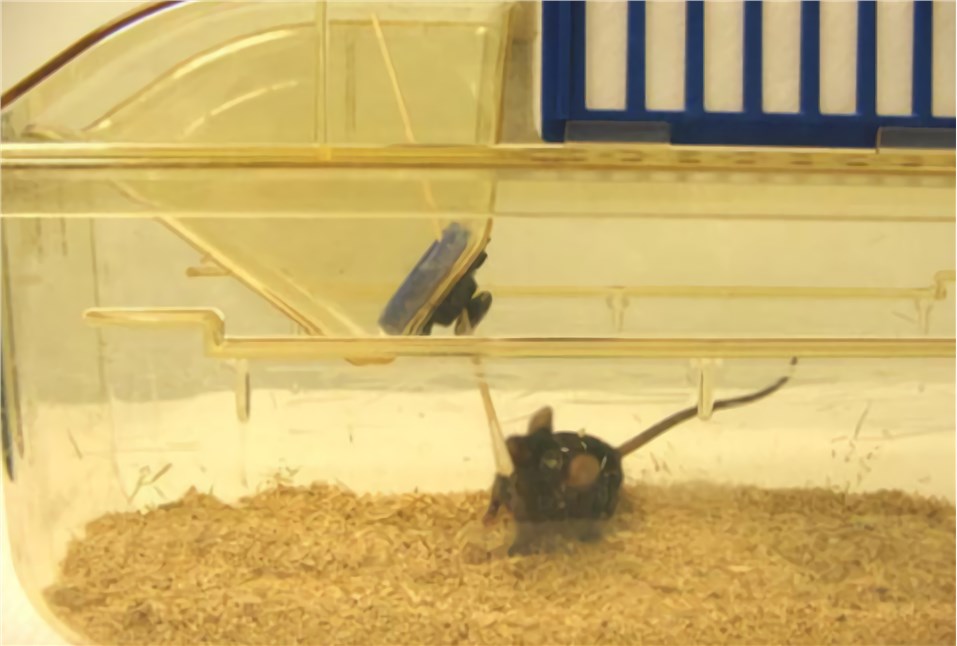Rodent Social Behavior Tests
Impairments in social behavior are characteristics of many neurodevelopmental and psychiatric conditions, including autism spectrum disorders (ASD), depression, bipolar disorders, obsessive-compulsive disorders, and schizophrenia. To assess sociability in animal models, many behavioral tests have been developed. These include tests for assessment of social interaction abnormalities, communication deficits, and repetitive behaviors. Integrative research using animal models combined with appropriate tests for social behavior is required for the development of improved treatments for social psychopathologies. Creative Biolabs provides the following commonly used social behavioral tests to assess novel chemical entities for their effect on social behavior and to identify deficits in social interactions in transgenic mice strains. Moreover, new behavioral tests of social behavior are constantly developed and validated.  Fig. 1 Three Chamber Social Test (Bicks et al. 2015)1, 3
Fig. 1 Three Chamber Social Test (Bicks et al. 2015)1, 3
This test measures the "sociability", the preference to spend time with another mouse, as compared to time spent alone in an identical but empty chamber, and "social novelty", the preference to spend time with a previously never-before-met mouse rather than with a familiar mouse. Creative Biolabs conducts the three-chamber social test to assess the effect of novel drugs on social behavior and the deficits in social interactions in transgenic mice. It has proven to provide a standard, simple design with a high-throughput approach to compare strains and genotypes, investigate the development of social deficits and to test effects of treatments and other manipulations on proximity and olfactory investigation of stimulus animals.
Tube Test
 Fig. 2 Tube Test (Bicks et al. 2015)1,3
Fig. 2 Tube Test (Bicks et al. 2015)1,3
This test measures dominant/submissive behavior in mice without allowing them to fight and injure each other. It is useful for identifying deficits in social interactions in transgenic mice and assessing novel drugs for their effect on social behavior and cognition. In the test, two mice of the same gender are placed at opposite ends of a clear, cylindrical tube and allowed to explore the tube center. At the point where the mice meet, the more dominant mouse will show greater aggression and continues to move forward, thereby forcing the submissive mouse back up. The mouse that leaves the tube first ('pushed out') is the loser and the other mouse (dominant) is the winner.
Olfactory Habituation/Dishabituation Test
 Fig.3 Olfactory Habituation/Dishabituation Test. (Yang et al. 2009)2, 3
Fig.3 Olfactory Habituation/Dishabituation Test. (Yang et al. 2009)2, 3
The main principle of this test is based on the natural tendency of mice to sniff a novel odor. In the test session, mice are first presented with three non-social odor cues, such as almond extract or banana flavoring. Each odor is given three times in three consecutive trials. Repeated presentation of the same odor will result in the mouse spending less and less time sniffing the smell if they have normal olfaction and memory (habituation). Sniffing time will increase again each time the mouse is presented with a new smell (dishabituation). Subsequently, the mouse is presented with social odors: urine collected from another mouse. Similarly, social cues are presented three times in three consecutive trials. As a result, animals with deficits in olfaction will show an inability to distinguish a new smell from an old one during the non-social phase. On the other hand, poor habituation and dishabituation to the social odor cues may suggest a social deficit.
Additionally, we provide a wide range of neurological disorder models for drug efficacy studies and drug screening:
For more information, please contact us or send us an inquiry.
References
- Bicks, L. K.; et al. Prefrontal cortex and social cognition in mouse and man[J]. Frontiers in Psychology. 2015, 6(17):354–361.
- Yang, M.; Crawley, J. N. Simple behavioral assessment of mouse olfaction[J]. Current protocols in neuroscience / editorial board, Jacqueline N. Crawley. [et al.]. 2009, Chapter 8: Unit 8.24.
- under Open Access license CC BY 4.0, without modification.
For Research Use Only.
